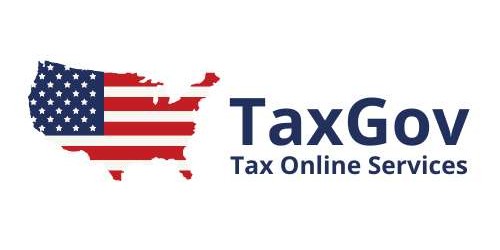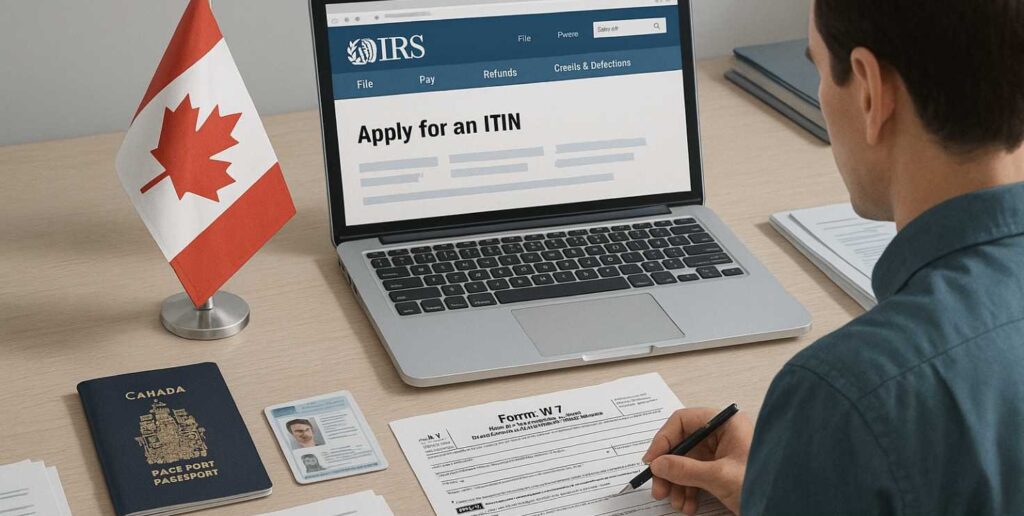Understanding ITIN for Canadian Citizens
Understanding ITIN for Canadian Citizens is essential for those who do not qualify for a Social Security Number but have tax responsibilities in the United States. An Individual Taxpayer Identification Number (ITIN) helps the IRS identify non-residents, foreign nationals, or others who need to file a tax return but are not eligible for an SSN. For Canadian citizens living or investing in the U.S., it’s vital to understand how the ITIN fits into tax obligations. While the process might seem daunting, it is manageable with the correct guidance. Understanding the rules and requirements set forth by the IRS will streamline tax compliance, allowing Canadian citizens to avoid penalties and complications. Whether you’re working on U.S. soil, investing in U.S. properties, or conducting business as a non-resident, obtaining an ITIN will be an integral part of your financial engagements with the United States.
Eligibility Requirements for an ITIN
Eligibility Requirements for an ITIN are specific and cater primarily to those who cannot obtain a Social Security Number (SSN). Canadian citizens might find themselves in need of an ITIN if they have U.S. sourced income, are a part of a partnership, or are involved in other taxable events that require reporting. An ITIN is necessary for non-residents who are required to file a U.S. tax return, and again, who do not qualify for an SSN. It’s important to note that an ITIN will not authorize work within the U.S. or provide Social Security benefits. Instead, it serves purely for federal tax purposes. To be eligible, one must apply using a W-7 form and include the appropriate documentation, such as a valid passport or other specific identification documents. The process ensures that activities subject to tax are monitored without hindering an individual’s legal status in the U.S.
Need help getting your ITIN?
We can help you apply for your ITIN quickly and easily. Let our team handle the process for you.
How to Apply for an ITIN
How to Apply for an ITIN requires careful attention to detail. As a Canadian citizen, you must complete and submit IRS Form W-7, Application for IRS Individual Taxpayer Identification Number. This form should accompany your U.S. federal tax return, or if applicable, the documentation showing your need for an ITIN. Supporting this application, you’ll need to provide original or certified copies of acceptable identification documents, such as a passport, that verify both your identity and foreign status. It’s crucial to ensure that these documents are current and valid to avoid rejection. You can mail your completed form to the IRS or submit it in person at IRS Taxpayer Assistance Centers without an appointment, offering a straightforward way to file your paperwork. Engaging with a Certifying Acceptance Agent is another alternative, providing assistance to ensure that all documentation and requirements are fulfilled.
Common Mistakes to Avoid When Applying
Common Mistakes to Avoid When Applying for an ITIN can save Canadian citizens time and frustration. One prevalent error is submitting incomplete forms, particularly the W-7, lacking necessary signatures or supporting documents. Failure to provide certified copies of identification, which must be recognized and accepted by the IRS, can lead to automatic rejections. Another frequent oversight is neglecting the application deadline relative to tax filing requirements, which can result in unnecessary financial penalties. Misunderstanding the purpose of the ITIN and using it to wrongly assume eligibility for Social Security benefits or to circumvent immigration rules can also cause complications. By ensuring all information is accurate, complete, and submitted timely, Canadian citizens can successfully obtain their ITIN without issues, thus fulfilling their tax obligations correctly and efficiently within the United States.
Challenges Canadian Citizens Might Face
Challenges Canadian Citizens Might Face in acquiring an ITIN often revolve around the submission of accurate and complete documentation. Ensuring that all paperwork aligns with IRS requirements is crucial, as discrepancies can lead to delays or rejections, complicating tax obligations further. Language barriers or misunderstandings of the application form (W-7) can also pose significant hurdles. Moreover, there’s a time-sensitive nature attached to the process; submitting proper documentation timely is essential to avoid penalties associated with non-compliance. Inadequate knowledge of the U.S. tax framework can further complicate the situation, especially if seeking exemptions or addressing dual status. Therefore, it’s recommended to consult with a tax professional knowledgeable about cross-border taxation issues between Canada and the U.S. They can provide invaluable guidance, helping Canadian citizens navigate these challenges effectively, ensuring that their tax affairs remain compliant and trouble-free.
The Importance of Consulting Professionals
The Importance of Consulting Professionals in obtaining an ITIN for Canadian citizens cannot be overstated. Navigating the intricacies of cross-border taxation and understanding the documentation requirements demand expertise. Professional tax consultants or legal advisors offer invaluable guidance, ensuring that every aspect of your application is correct and complete, minimizing the risk of rejection or delay. They provide tailored support that addresses unique circumstances, answering complex questions, and clarifying misconceptions about tax responsibilities in the United States. Moreover, professionals remain updated with the latest regulatory changes, which is crucial for maintaining compliance. Engaging their services is a proactive measure that saves time and prevents costly mistakes, making the ITIN application process much more manageable for Canadian citizens dealing with the complexities of international tax compliance.
Renewing Your ITIN
Renewing Your ITIN is a necessary step for many Canadian citizens who continue to have tax obligations in the United States. An ITIN expires if it is not used on a federal tax return at least once in the last three years or if certain numeric sequences (9 middle digits) no longer work, requiring renewal to remain valid for tax filings. The renewal process involves resubmitting form W-7 with updated documentation proving your identity and foreign status, much like the original application process. It’s paramount to address renewal well before tax filing season to prevent any delays in processing returns and avoid potential penalties. Renewal applications can be mailed to the IRS or processed through an Acceptance Agent to prevent errors. By staying proactive about the renewal, Canadian citizens ensure seamless compliance with U.S. tax authorities, securing their financial interests and upholding their legal responsibilities across both countries.
Need help getting your ITIN?
We can help you apply for your ITIN quickly and easily. Let our team handle the process for you.
Final Tips for a Successful Application
Final Tips for a Successful Application include being meticulous with every detail required by the IRS. Canadian citizens should prioritize gathering all necessary documents ahead of time, ensuring no expired or incorrect information is presented. It is crucial to clearly understand the purpose of each required form and document, as well as the implications of having an ITIN. Regularly reviewing application requirements and staying informed of any regulatory updates can also aid in preparation. Utilizing resources such as the IRS website or consulting a tax professional can provide clarity and assurance in the application process. Maintaining good organizational skills and giving yourself plenty of time before deadlines can alleviate the stress often associated with tax processes. By adhering to these tips, Canadian citizens can enhance their chances of a smooth and successful ITIN application, ensuring compliance and peace of mind.


